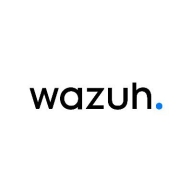

Microsoft Sentinel and Wazuh compete in the cybersecurity sector, offering comprehensive security solutions. Microsoft Sentinel appears to have the upper hand with its advanced analytics and integration within the Microsoft ecosystem. Meanwhile, Wazuh's open-source nature provides a cost-effective solution for smaller enterprises.
Features: Microsoft Sentinel is distinguished by its rich data queries, automated processes, and AI capabilities for threat detection and response in hybrid environments. Wazuh is notable for its integration capabilities, file integrity monitoring, and compliance checks, providing essential functionalities.
Room for Improvement: Microsoft Sentinel users have highlighted a steep learning curve and challenges with custom queries as areas needing enhancement, along with occasional alert delays and integration issues. Wazuh users suggest its detection capabilities, threat intelligence, and scalability for large enterprises could be improved, along with providing more robust customer support.
Ease of Deployment and Customer Service: Microsoft Sentinel is primarily deployed in public cloud environments, benefiting from seamless integration with Microsoft services. However, premium support, while seen as advantageous, can be costly for larger enterprises. Wazuh supports multiple deployment types, including on-premises, but users often need to rely on community support due to limited technical assistance.
Pricing and ROI: Microsoft Sentinel is considered pricey, especially influenced by data ingestion rates and retention needs. It offers a pay-as-you-go model, making it more suitable for large organizations leveraging Microsoft solutions for cost efficiency. Conversely, Wazuh, as an open-source solution, stands as a cost-effective option for smaller businesses, mainly spending on support and deployment infrastructure.
If a customer is already using Microsoft’s ecosystem, the ROI can be positive due to seamless integration.
We attribute our growth to Sentinel.
From a risk perspective, it's about mitigating risk, and as mentioned earlier, we haven't missed many things since we've had the offering in market—only a couple of minor incidents.
I have seen value in security cost savings with Wazuh, as using proprietary EDR versions could save us substantial money.
Their solutions' integration simplifies resolving issues compared to those caused by third-party products.
Working with a Sentinel engineer helped us tune settings effectively.
When my team needs to escalate issues to Microsoft, especially for Microsoft Sentinel, the response is fast through their French entity.
They responded quickly, which was crucial as I was on a time constraint.
We use the open-source version of Wazuh, which does not provide paid support.
The documentation is good and provides clear instructions, though it's targeted at those with technical backgrounds.
Office 365 and Exchange are running on it, covering about 35,000 users efficiently.
As our organization uses Microsoft Azure and Defender, everything grows together, and we can integrate various features seamlessly.
Being a SaaS solution, the scalability of Microsoft Sentinel is robust.
It can accommodate thousands of endpoints on one instance, and multiple instances can run for different clients.
Currently, I don't see any limitations in terms of scalability as Wazuh can still connect many endpoints.
Scalability depends on the configuration and the infrastructure resources like compute and memory we allocate.
So far, we have not experienced any issues, and it has been stable from the beginning.
In the past two years, our team hasn't encountered any issues with the stability of Microsoft Sentinel from an operations perspective.
I need to be aware of deprecated connectors as they may disconnect, but the data continues to be sent with a need for quick adaptation.
The stability of Wazuh is strong, with no issues stemming from the solution itself.
The stability of Wazuh is largely dependent on maintenance.
The indexer frequently times out, requiring system restarts.
We have some tools, such as our off-site Meraki firewalls, that have not fully integrated with Sentinel.
Currently, we are happy to have a way in the middle with not so much cost, but it would be nice to have the ability to enhance the automation of workflows based on learned incidents.
There are complexities in calculating the right pricing tier for different customers, which makes it difficult for me as a consultant during upfront pricing.
Machine learning is needed along with understanding user behavior and behavioral patterns.
The integration modules are insufficiently developed, necessitating the creation of custom integration solutions using tools like Logstash and PubSub.
I think Wazuh should improve by introducing AI functionalities, as it would be beneficial to see AI incorporated in the threat hunting and detection functionalities.
Microsoft Sentinel offers more capabilities than Bastion, with a more intuitive experience.
Setting up the right cost model for customers is intricate, requiring careful consideration of various components and licensing tiers.
The ingestion costs for the data analytics is usually the highest cost.
Wazuh is completely free of charge.
I would definitely recommend Wazuh, especially considering Fortinet's licensing model which is confusing and overpriced in my opinion.
Totaling around two lakh Indian rupees per month.
Microsoft Sentinel's ability to correlate data from multiple sources and its detection capabilities are essential.
Microsoft Sentinel has improved cost efficiency, which is one of the key areas we're able to win business against the ability to have threat intelligence.
Microsoft Sentinel's ability to correlate data from multiple sources enhances our threat detection capabilities beyond what is a simple data lake solution by filtering out the noise and consolidating the signal down to a meaningful level that is easier to investigate and see.
Wazuh is a SIEM tool that is highly customizable and versatile.
The system allows us to monitor endpoints effectively and collect security data that can be utilized across other platforms such as SOAR.
With this open source tool, organizations can establish their own customized setup.
| Product | Market Share (%) |
|---|---|
| Wazuh | 10.2% |
| Microsoft Sentinel | 6.2% |
| Other | 83.6% |


| Company Size | Count |
|---|---|
| Small Business | 37 |
| Midsize Enterprise | 20 |
| Large Enterprise | 41 |
| Company Size | Count |
|---|---|
| Small Business | 26 |
| Midsize Enterprise | 15 |
| Large Enterprise | 8 |
Microsoft Sentinel is a scalable, cloud-native, security information event management (SIEM) and security orchestration automated response (SOAR) solution that lets you see and stop threats before they cause harm. Microsoft Sentinel delivers intelligent security analytics and threat intelligence across the enterprise, providing a single solution for alert detection, threat visibility, proactive hunting, and threat response. Eliminate security infrastructure setup and maintenance, and elastically scale to meet your security needs—while reducing IT costs. With Microsoft Sentinel, you can:
- Collect data at cloud scale—across all users, devices, applications, and infrastructure, both on-premises and in multiple clouds
- Detect previously uncovered threats and minimize false positives using analytics and unparalleled threat intelligence from Microsoft
- Investigate threats with AI and hunt suspicious activities at scale, tapping into decades of cybersecurity work at Microsoft
- Respond to incidents rapidly with built-in orchestration and automation of common tasks
To learn more about our solution, ask questions, and share feedback, join our Microsoft Security, Compliance and Identity Community.
Wazuh offers comprehensive security features like MITRE ATT&CK correlation, log monitoring, and cloud-native infrastructure. It ensures compliance and provides intrusion detection with high scalability and open-source flexibility, ideal for businesses seeking robust SIEM capabilities.
Wazuh stands out in security information and event management by providing efficient log aggregation, vulnerability scanning, and event correlation against MITRE ATT&CK. Its capability to integrate seamlessly with environments, manage compliance, and monitor files makes it suitable for cloud-native infrastructures and financial sectors. Despite its technical support needing enhancement and opportunities for improving AI integration and threat intelligence, its open-source nature and cost-effectiveness make it appealing. Users can leverage custom dashboards powered by Elasticsearch for precise data analysis, even though there is a desire for a more user-friendly interface and better enterprise solution integration. Deployment may be complex, but its features contribute significantly to fortified security postures.
What are the essential features of Wazuh?Industries like finance and cloud infrastructure heavily utilize Wazuh for its security strengths. By monitoring endpoints and ensuring compliance with frameworks, companies can improve security posture and swiftly detect anomalies. The platform's focus on event correlation and alerts for security incidents is particularly beneficial.
We monitor all Security Information and Event Management (SIEM) reviews to prevent fraudulent reviews and keep review quality high. We do not post reviews by company employees or direct competitors. We validate each review for authenticity via cross-reference with LinkedIn, and personal follow-up with the reviewer when necessary.